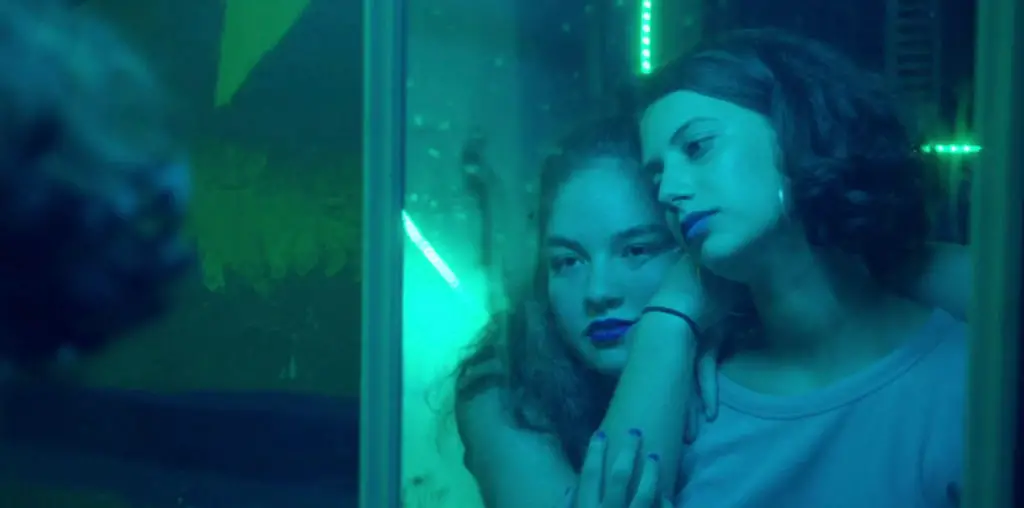
Have you ever heard somebody pose the question, “How can you sleep at night?” Do you have to stifle the urge to laugh? I do. It seems that question is only a couple of steps past worrying whether Santa Clause is going to come to your house if you don’t have a chimney. If you ask it, you presume that everyone lives in the same moral universe that you do. Really each of us lives in our separate moral fortress, and we each believe whatever will keep the walls from crashing down.
Errol Morris is one of our greatest filmmakers. He makes documentaries. Morris tends to make films about people living far out of the mainstream in worlds of their own creation. In examining someone operating outside of the box, the director gives us a new perspective on man, society and the world in which we all have to live. This time out, we meet Fred A. Leuchter, Jr.
Fred is a simple man. In the words of neo-nazi Ernst Zundel, “a simpleton”. Fred is primarily an engineer. He grew up around the cell block run by his father in a Massachusetts prison. It contained death row. As many states reinstated the death penalty, they found that their old equipment was badly designed or in disrepair. Fred had heard many stories of botched executions where the condemned died horrible deaths. Having all the necessary knowledge, he first designed a new electric chair that was relatively cheap to build, reliable, easy to clean, and painless so the prisoner could die a “dignified death”.
After his designs were implemented in several prisons, he was asked to design a lethal injection machine. Then, he was asked to repair a prison gallows, and then re-design a gas chamber. In America, Fred became the de facto expert on execution equipment.
Fred’s a real loner. He’s kind of a nerd and doesn’t have much in the way of friends. He marries a middle-aged waitress from a diner. He feels he’s found his place in the world and life isn’t so bad. What he doesn’t have, is a real understanding of the world or any comprehension of politics. It’ll cost him.
This is where Ernst Zundel comes in. He’s on trial in Canada for publishing Holocaust-denial literature such as, “Did Six Million Really Die?” Ernst decides that he’ll get scientific proof that the Holocaust didn’t happen. While you, or I, or any decent lawyer would suggest a forensic scientist, Zundel states a need for an expert on gas chambers and digs up poor Fred. Fred, who has only repaired a gas chamber, actually believes he’s the only one qualified and runs off to Poland with a film crew like an eight-year-old on a grand adventure.
Illegally taking samples from the walls of the dilapidated concentration camps (he doesn’t even label the bags), he sends them off for cyanide analysis. Since Fred never told the lab what, exactly, they were looking for, they perform the wrong tests. The results, predictably, come back false. Fred, who has screwed up nearly every step of the investigation, publishes “The Leuchter Report”, which “proves” the Holocaust never really happened. Life gets ugly. The world goes after him.
Fred states at one point that he is not an anti-semite. I believe him. He is vain, naive, and self-deceiving. At one point, while Fred visits Auschwitz, he asks himself a revealing question: “Why would anyone murder all these people?” He understands the mechanics of death but he doesn’t know people. He doesn’t want to believe that anyone would be capable of this kind of act. It’s this disbelief that lies at the heart of many Holocaust deniers. They don’t WANT to believe that the Germans or anyone else are capable of such evil. This is what Morris wants to show us. People want to believe in the basic goodness of man, particularly of their own kind. An honest look at history teaches us otherwise. The Holocaust not only happened, but was unique only for its automation. Bosnia, Cambodia, Rwanda, Nanking, and the interactions of Europeans with the original occupants of this continent all reveal a capacity for atrocity. You want to see evil? Go study what the Japanese did in China during in World War II. How did the perpetrators of all those crimes live with themselves? They believing whatever was necessary. They lived in a moral universe where all the bloodshed was okay. They were “just doing their jobs”, just like poor Fred when he “proved” there was no Holocaust.
Errol Morris has given us a complex film with an important lesson. Human beings are not rational creatures. We are shaped by our experiences and our environment, and we are ruled by our desires. If you believe that a logical argument can make another person see the light, you’re probably wrong. Truth is not an argument, it’s an EXPERIENCE. You have to feel it, to really believe it. People believe God exists because they feel it, not from a rational argument. Truth is no more an absolute that the idea of “right and wrong” and “good and evil”. Until you comprehend that idea, you can never understand from where “good” and “evil” really come.
